10 Body Image Books that Help Improve Our Relationship with Our Bodies
Published on
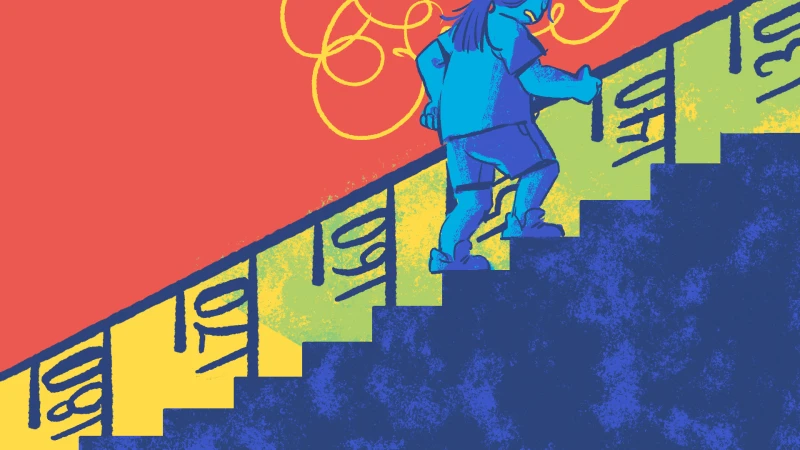
by Rozella
I've had a complicated relationship with food since I first developed an eating disorder at age 11. The holidays and celebrations were especially difficult for me because I was surrounded by so many delicious foods that were considered "bad," and I felt guilty for eating, gaining weight, and looking even uglier and less attractive than I already thought I was.
I remember once when I was about 19, I was at a party with my family and I had a binge-eating episode. I stuffed myself with so much food that I couldn't keep it down and had to run to the bathroom to throw it all up. Afterwards, I straightened up, wiped away my tears, went back outside, pretended nothing happened, and kept laughing and making small talk like everything was fine, even though it obviously wasn’t.
I never told anyone how much I struggled with my eating disorder because when I tried, I was just told to get a grip and control myself and stop being dramatic, or I was reinforced with positive feedback when I was thin, which is the worst thing someone can hear who's completely lost control of themselves and needs help.
It took me a long time to uncover the roots of my struggle with food and heal my relationship with my body to get to where I'm today. But if I'm honest, I still sometimes feel vulnerable and impulsive when dealing with food, especially when I'm stressed, overwhelmed, or sad. And I have to remind myself to be kind and gentle to my body and treat it with the love and respect it deserves.
Here's a list of 10 recommended books that have helped me understand more about eating disorders and society’s obsession with beauty and thinness, and have helped me develop a healthier body image and relationship with food and myself.
1. The Beauty Myth by Naomi Wolf
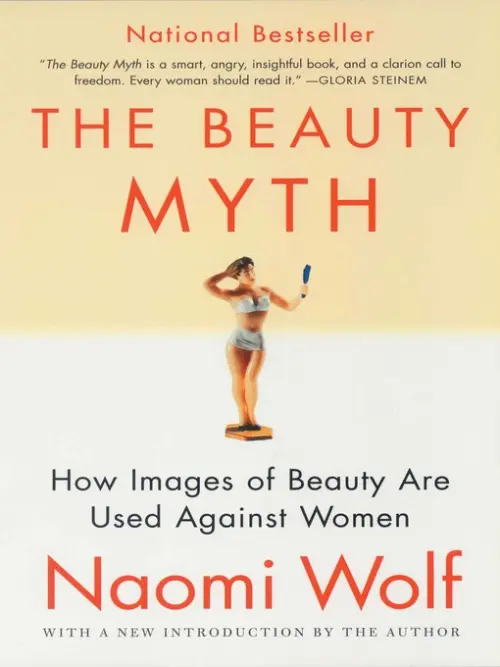
The Beauty Myth explores society's obsession with physical perfection, which traps the modern woman in an endless spiral of hope, self-consciousness, and self-hatred as she attempts to fulfil society's impossible definition of "the flawless beauty."
It also discusses how the pressure on women to conform to unrealistic societal beauty standards has become even more intense due to the commercial influences of mass media, and how it leads to unhealthy behaviour and affects women's ability to succeed in and be accepted by society.
2. Body of Truth: Change Your Life by Changing the Way You Think about Weight and Health by Harriet Brown

For more than a decade, science journalist Harriet Brown has explored issues of weight, body image, and our relentless desire to be slim. In this book, she describes how biology, psychology, metabolism, media, and culture come together to shape our ongoing obsession with our bodies, and what we can learn from them to help us change our mindset and stop letting our insecurities affect every relationship we have, including the one with ourselves.
Body Truth debunks some of the myths behind the rhetoric of obesity, explains the historical and contemporary context of what it means to be "fat," and suggests ways to set aside the hysteria and think about weight and health in more nuanced and accurate ways.
3. Please Eat: A Mother's Struggle to Free Her Teenage Son from Anorexia by Bev Mattocks
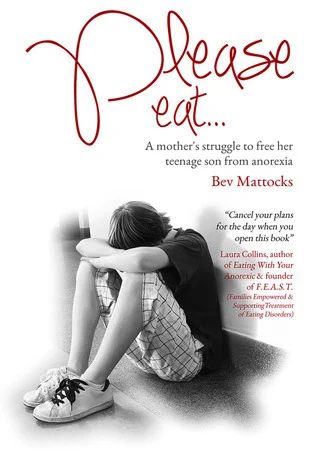
This memoir is a heartbreaking yet inspiring account of a mother's struggle to free her 15-year-old son Ben from anorexia, and how she helplessly watched her son begin to systematically starve himself, exercise to the extreme, and transform physically and mentally into someone she didn't recognise. She also describes how Ben, with the help of his parents and therapist and through his own determination, slowly got better and got his life back on track.
4. Hunger: A Memoir of My Body by Roxane Gay

This memoir is an honest look into the New York Times bestselling author's journey with food, weight, and self-image. She discusses her own emotional and psychological struggles to explore society's common fears about pleasure, consumption, appearance, and health.
In Hunger, she talks about the tension between desire and denial, self-comfort and self-care, and explores what it means to care for ourselves: how to satisfy our hunger for food, a smaller and safer body, and a body that can love and be loved.
5. Oppression and the Body: Roots, Resistance, and Resolutions Edited by Christine Caldwell and Lucia Bennett Leighton

Through theory, personal narratives, and artistic expression, this anthology explores what it means to live in a marginalised body in a culture where bodies of people who are brown, black, female, trans, disabled, fat, or queer are often shamed, sexualised, ignored, and oppressed. It discusses how power, privilege, and oppression affect the bodies of marginalised people and what happens when our body expression is stereotyped and stunted.
Bringing together a range of voices, this book offers strategies and practices for embodiment and activism, and considers what it means to be an ally for all who experience bodily oppression.
6. Beautiful You: A Daily Guide to Radical Self-Acceptance by Rosie Molinary
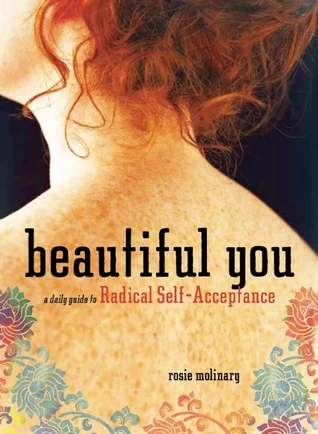
Beautiful You is a 365-day guidebook that focuses on self-knowledge, creativity, and mind-body connections to help women break undermining habits of self-criticism, boost their self-confidence, achieve deep self-acceptance, and promote their own emotional and physical well-being.
In this book, Rosie Molinary eschews flowery affirmations and daily meditations often used in personal growth books. She offers a nuanced, authentic, and modern guide with inspiring thoughts and powerful, practical actions that will appeal to anyone who has ever wavered in their self- confidence or lost their personal spark.
Beautiful You helps women stay positive and confident in their own bodies and skin, even when bombarded with images and messages that suggest their beauty is inadequate.
7. Beauty Sick: How the Cultural Obsession with Appearance Hurts Girls and Women by Dr. Renee Engeln
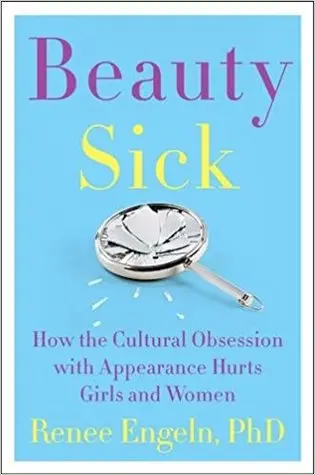
In this book, Dr. Renee Engeln, whose TEDx talk titled "An Epidemic of Beauty Sickness" has been viewed more than 780,000 times, reveals the shocking consequences of our obsession with girls' appearance on their emotional and physical health as well as their wallets and ambition, including depression, eating disorders, cognitive processing disorders, and loss of money and time.
Combining scientific studies with the voices of real women of all ages, she makes the case that we must free ourselves from cultural forces that feed destructive desires, attitudes, and words-from fat-shaming to derogatory remarks about other women-in order to truly realise our potential.
Dr. Engeln offers inspiration and workable solutions to help girls and women overcome negative attitudes and embrace their whole selves to transform their lives, claim the futures they deserve, and ultimately change their world.
8. More Than A Body: Your Body Is an Instrument, Not an Ornament byLexie Kite and Lindsay Kite
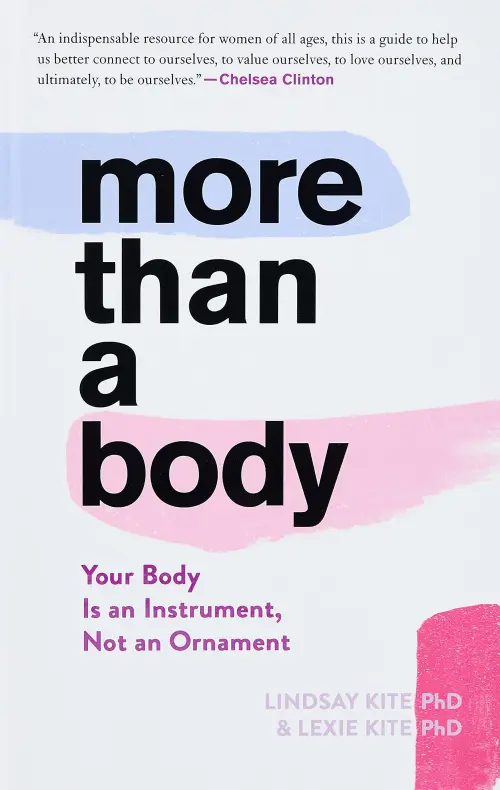
In a beauty-obsessed world where the notion prevails that happiness, health, and the ability to be loved depend on how we look, twin sisters Lindsay and Lexie, co-directors of the nonprofit Beauty Redefined, offer compelling and practical advice that goes beyond the concept of "body positivity."
This book helps people develop a stable body image and break through the empty promises of the media, advertising, and the beauty and weight loss industries. It shows how confronting body shame or insecurities can become a catalyst for personal growth, and includes an action plan to equip people with the skills they need to reconnect with their whole selves and free themselves from the constraints of self-objectification.
9. I Feel Bad About My Neck: And Other Thoughts on Being a Woman by Nora Ephron
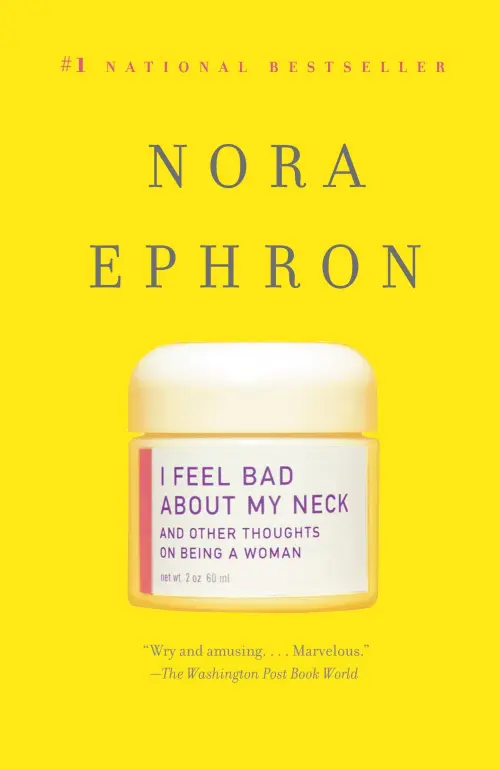
This memoir consists of a collection of 15 short essays in which Academy Award-nominated writer Nora Ephron talks about how much time she spends "freezing" time with products such as hair dyes, treadmills, lotions and creams that promise to slow the ageing process but never do. It's a frank and funny look at women who struggle with the difficulties of maintaining their youth, the changes their bodies go through as they age, and life itself.
10. The Body Is Not an Apology: The Power of Radical Self-Love by Sonya Renee Taylor

In The Body Is Not an Apology, activist and poet Sonya Renee Taylor invites us to reconnect with the origins of our minds and bodies and celebrate our collective, enduring strength. She shows us ways to embrace our bodies and heal the wounds created by violent systems of oppression that thrive on our inability to make peace with otherness and violate our relationship with our own bodies.
In this book, she describes how when we awaken to our own indoctrinated body shame, we feel inspired to awaken others and break through the systems that perpetuate body shame and oppression against all bodies. She also encourages us to embrace the transformative opportunity of radical self-love to create a more just, equitable, and compassionate world for all of us.